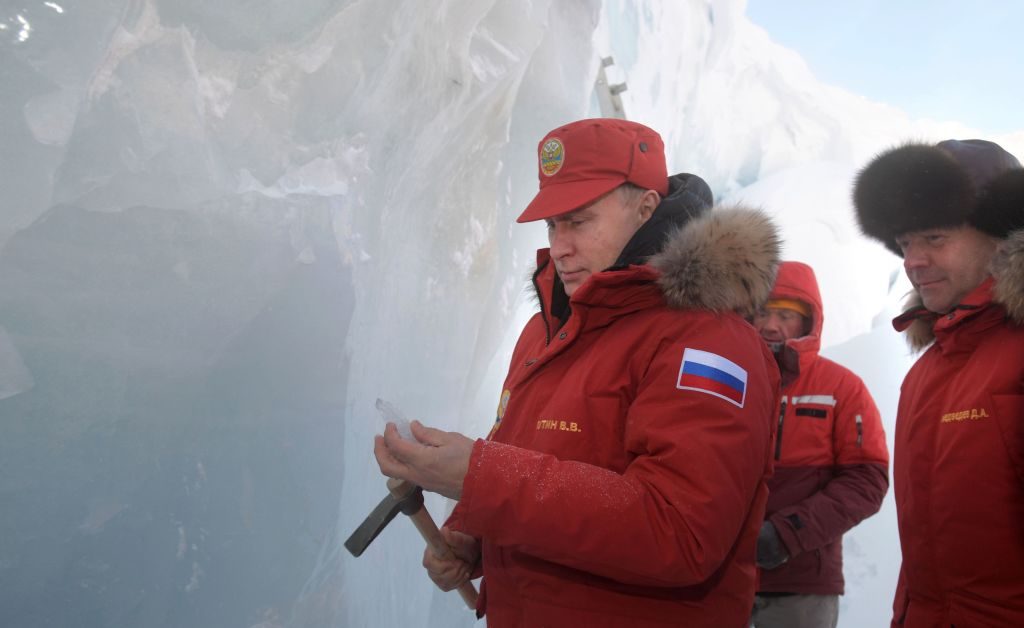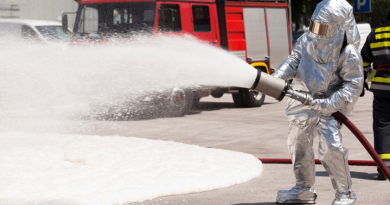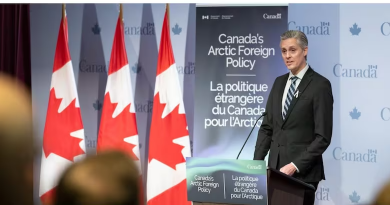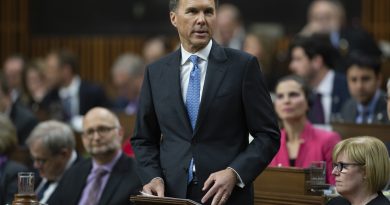Putin voices concern about melting permafrost, but doubts it’s caused by humans

It was another marathon press conference. In a well-staged show Putin got telephone calls and questions from across the country about the state of the nation, ranging from housing affairs in the countryside, local jobs, and to relations with the abroad.
And climate change.
On a question about ongoing environmental changes in the country, Putin left no doubt that global warming could have detrimental consequences. And he expressed special concern about the melting of the permafrost.
“Parts of our country, about 70 percent, are located in the north […] and we have settlements, infrastructure in the area, and if it was all to melt it would have serious, very serious, social and economic consequences,” the President underlined.
“We have to get prepared for it,” he said.
Government working on climate action plan, president says
He also explained that parts of the country’s traditional agricultural areas are experiencing draught and gradually could be turned into desert land.
But Putin appeared not ready to fully accept that climate change is human-made. In the press conference, he made clear that not everybody believes humans are behind global warming and that there are natural periodical changes in climate across the planet.
According to the President, “some people believe […] that an irreversible process could set in which would turn our planet to a condition similar to Venus where, as we know, the surface temperature is about 500 °C.”
The climate skepticism notwithstanding, Putin today increasingly appears to acknowledge the serious challenges coming from climate change and take climate action.
In the press conference, he made clear that the federal government is working on an action plan for handling of climate change, and that Russia will take part in international efforts on capture of CO2.
The growing climate engagement was expressed also in Putin’s speech in the recent international Climate Summit. In the presence of world leaders, the Russian president underlined that “the fate of our planet, the development perspectives of each country, the prosperity and life quality of people, depends on the success of our efforts.”
Putin stresses adaptation
In contrast, only few years ago, Putin openly said that climate change would be beneficial to Russia.
Speaking in the Arctic Forum in 2017, he underlined that climate change is positive for Russian developments in the Arctic.
“With climate change comes more favourable condition for exploitation of this region for economical purposes,” he said and pointed at the huge increase in shipping along the Northern Sea Route.
There is nothing to do about global warming, Putin argued.
“I fully agree with the ones who consider that the question is not about how to prevent it, because that is simply impossible, it could be linked with some kind of global cycles on Earth or the planetary system.”
“The question now is all about adaptation,” Putin underlined.
Related stories from around the North:
Canada: Arctic’s Last Ice Area losing twice as much ice compared to rest of region: Study, CBC News
Greenland: Tipping points: can a leaked report tip the scales to climate action? Blog by Irene Quaile
Norway: Polar bears face extinction in Svalbard and Arctic Russia says scientist, The Independent Barents Observer
Russia: Record breaking temperatures recorded in Arctic Russia, Eye on the Arctic
Sweden: Sweden’s wildfire season later than usual, Radio Sweden



